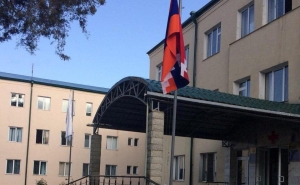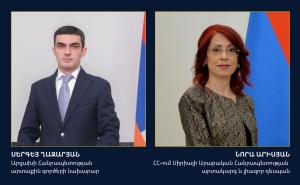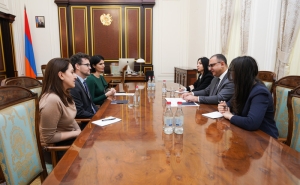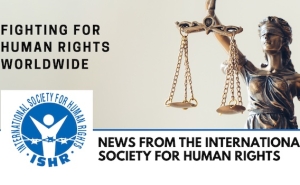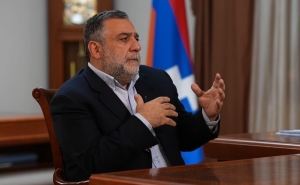 What does Azerbaijan Try to Change?
What does Azerbaijan Try to Change?
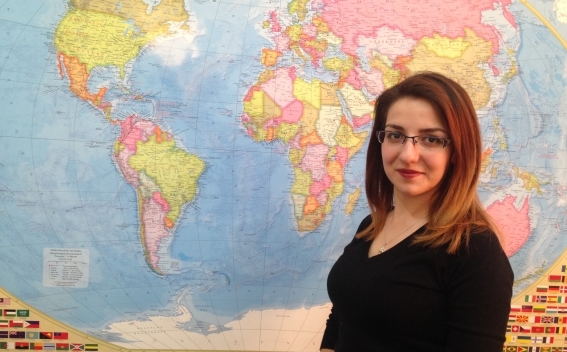
After the four-day war unleashed by Baku in April several changes took place not only in military, but also in political processes. Particularly, the Azerbaijani authorities in their statements when talking about the ceasefire, mainly emphasize the verbal agreement reached in Moscow on April 5 between the Chiefs of Staff of the Armed Forces of Armenia and Azerbaijan, but not the 1994 tripartite agreement on ceasefire.
In parallel, the Chargé d’affaires a.i. of the Permanent Mission of Azerbaijan to the United Nations sent a letter to the Secretary-General paying attention to the fact as if the military actions of the Armenian side have denounced the 1994 ceasefire agreement. With such a step Azerbaijan pursues several objectives.
First, in this way official Baku as if is trying to fix the situation after April war and nullify the agreements and negotiations that were before that, including their legal basis. This is a preliminary step to get rid of not desirable provisions of "Madrid principles" and to get more opportunities of maneuver in the new situation.
Second, the 1994 ceasefire agreement and the 1995 agreement strengthening this ceasefire are tripartite and under them the signature of the representatives of Azerbaijan, Artsakh and Armenia are put. Azerbaijan always avoids recognizing Artsakh as party to negotiations and conflict, presenting Karabakh conflict as a bilateral conflict between Armenia and Azerbaijan. Now Baku is trying to take advantage of the fact that a new verbal agreement was reached in Moscow between Armenia and Azerbaijan, thus giving a legal character to leaving Artsakh out of the process.
Third, the 1994 ceasefire agreement is a written one, which in addition to ceasing the firing also means fixing the borders of that time, while only a verbal agreement was reached in Moscow in April to cease firing. Therefore, by referring to the latter agreement, Azerbaijan is trying to get rid of the problem of fixing the borders as well.
Azerbaijan’s this policy and rhetoric jeopardize the ceasefire in general and create a great risk of renewed war. In addition, in this way the whole reconciliation process of the 22 years is being put under question, nullifying mediators’, including Russia’ (which is the main mediator and the guarantor of 1994 ceasefire agreement) efforts. It is no coincidence that during his visit to Yerevan Russian Foreign Minister Sergei Lavrov repeatedly stressed that the 1994 ceasefire agreement is permanent and binding.
Baku, unable to solve its problems on the battlefield, is trying to get dividends from its April adventures at least on the political level. This approach is unacceptable for the Armenian sides. This is how the hardened stance of the RA and the RA President’s statement that one cannot speak about continuing the negotiations until the 1994-1995 ceasefire agreement is kept is explained.
Other materials on this subject
- Russian forces have clearly failed in their duties: senators press Biden Administration to break Azerbaijan’s blockade The United States cannot stand aside while the Aliyev regime callously threatens the lives of Nagorno-Karabakh’s citizens, and must hold Azerbaijan to account for blocking a civilian population’s access...
- US calls for the full restoration of free movement through the Lachin Corridor "We remain concerned about impeded access to the Lachin Corridor and the humanitarian implications of this situation. This sets back the peace process and undermines international confidence. We call for...
- Azerbaijani forces violate the ceasefire in Artsakh The ceasefire violation was reported to the command of the Russian peacekeeping troops.
- Azerbaijani units violate ceasefire in several directions, Artsakh’s Defense Ministry says The Armenian side has no losses. The incidents of ceasefire violations were reported to the command of the Russian peacekeeping troops.
- Russian Diplomat Reassures Armenians Over Corridor In Karabakh "The parties are in direct contact, and I assure you that the peacekeepers will not move a single centimeter until there is a new corridor," Seleznyov said.
-
 17:08
17:08The regular session of the Anti-corruption Policy Council takes place in Jermuk
-
 15:05
15:05The Prime Minister sends congratulatory messages to the supreme leader of Iran and the President of Iran
-
 11:11
11:11Armenia sends earthquake aid to Turkey
-
 10:43
10:43Commemoration of the Pontiff St. Sahak Partev
-
 09:16
09:16Some roads are closed and difficult to pass in Armenia
-
 19:55
19:55Phone conversation of the Foreign Minister of Armenia with the U.S. Assistant Secretary of State for European and Eurasian Affairs
-
 18:30
18:30Prime Minister Pashinyan and President Khachaturyan meet
-
 18:20
18:20Ararat Mirzoyan with Co-Chairman of the OSCE Minsk Group of France Brice Roquefeuil
-
 17:01
17:01Humans could land on Mars within 10 years, Musk predicts
-
 16:45
16:45France, US urge 'immediate' end to Nagorno Karabakh blockade
-
 16:01
16:01Blockaded Nagorno Karabakh launches fundraiser to support quake-hit Syria
-
 15:59
15:59Earthquake death toll in Turkey rises to 18,342
-
 15:43
15:43Ararat Mirzoyan Held a Telephone Conversation with Sergey Lavrov
-
 15:06
15:06French president rules out fighter jet supplies to Ukraine in near future
-
 14:47
14:475 Day Weather Forecast in Armenia
-
 14:44
14:44President Vahagn Khachaturyan wrote a note in the book of condolences opened in the Embassy of Syria in Armenia
-
 14:20
14:20Azerbaijan’s provocations impede establishment of peace and stability – Armenian FM tells Russian Co-Chair of OSCE MG
-
 12:57
12:57France representation to OSCE: Paris calls on Azerbaijan to restore freedom of movement through Lachin corridor
-
 11:40
11:40Command of Kosovo forces highly appreciated preparation of Armenian peacekeepers
-
 10:16
10:16The United States withdrew from sanctions against Syria for six months the provision of assistance after the earthquake
day
week
month
Humidity: 57%
Wind: 1.54 km/h



